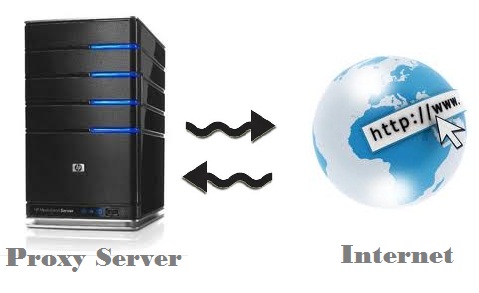Within today's digital age, internet users are often faced with the challenge of maintaining their online privacy and security. As more people link to the internet, the risk of bandwidth throttling and unauthorized information access increases. This is where proxy servers come into action, offering a remedy that helps users navigate the complexities of the web while safeguarding their personal information and enhancing their online experience.
Proxy servers act as middlemen between users and the internet, providing a layer of anonymity and protection by hiding IP addresses and regulating traffic. Whether you're looking to watch your favorite shows, access region-locked content, or simply enhance your online security, understanding how proxies work and their potential advantages is essential. In this article, we will investigate various facets of proxy servers, including their distinctions from VPNs, the protection elements they offer, and the ethical considerations surrounding their utilization. Accompany Have a peek at this website as we explore the world of proxies and discover how they can help you avoid bandwidth throttling while maximizing your online potential.
Comprehending Proxy Servers
Proxy servers act as middlemen between your device and the web. When you attach to a proxy server, your inquiries for websites and online services are primarily forwarded to the server. The proxy then passes those requests to the target site, acquires the data, and sends it back to you. This procedure effectively masks your IP address, providing a degree of privacy while browsing the web.
There are various types of proxy servers, each serving distinct uses. HTTP proxies are mainly utilized for internet traffic, while SOCKS can handle multiple types of data, including email and transfers of files. Transparent proxies do not alter your inquiries, while different types, such as high anonymity proxies, mask your identity more thoroughly. Understanding the variances among these types can guide you select the appropriate proxy for your requirements.
Using a proxy server not only boosts privacy but can also improve security. By sending your traffic through a proxy, your data is less likely to be intercepted by malicious actors. Additionally, certain proxies come with functions like data encryption, further protecting your details. Utilizing these servers can be a calculated decision for people and businesses looking to protect their internet activities.
Benefits of Using Proxy Servers
Using proxy servers delivers multiple benefits for single users and organizations. A primary of the primary benefits is increased online privacy. By routing your internet traffic through a proxy, your original IP address is concealed, which makes it hard for websites and online services to track your activities back to you. This additional layer of anonymity is vital for individuals who wish to navigate the internet without being surveilled by advertisers or other third parties.
Additionally significant benefit is better online security. Proxy servers can serve as an intermediary between the user and the internet, purging malicious content and preventing access to harmful websites. This protection is vital for organizations that want to secure sensitive information and ensure their employees operate in a protected online environment. Employing proxies also allows for the application of security measures like access control and content filtering, which can help create a safe network.
Furthermore, proxy servers can improve the overall browsing experience. They have the capability to save web pages and content, yielding faster load times for frequently visited websites. This is notably beneficial for businesses that rely on productivity, as employees can access needed resources quickly. Furthermore, proxies enable users to evade geographic restrictions and access blocked content, which makes them an essential tool for anyone looking to navigate the internet without barriers.

Proxy Services for Internet Anonymity and Security
Proxy services play a vital role in boosting internet privacy and security by functioning as intermediaries between individuals and the web. When a user connects to a proxy, their web requests are sent through the proxy, masking their original IP location. This anonymity helps prevent sites and internet services from monitoring user behavior, which is ever important in an era where data privacy is a major concern. Besides, proxy services can filter and block harmful material, further safeguarding individuals from possible threats.
One of the main advantages of using proxy servers for protection is their capability to encrypt information transmitted between the user and the server. This encryption helps protect confidential information from being captured by hackers or other harmful actors. By employing secure proxy services, users can safeguard their internet transactions, interactions, and private information, making it significantly more difficult for hackers to take advantage of vulnerabilities. This is especially vital for companies that handle confidential information, as proxy servers provide an additional level of defense against information breaches.
Additionally, proxy servers can help users obtain region-locked content while maintaining privacy. Many web service providers and broadcasting platforms track individual positions and can impose regional barriers. By using a proxy service located in a different region, users can evade these restrictions without disclosing their real IP locations. This capability enables users to enjoy a broader range of material while keeping their internet activities private and secure, ensuring a more secure surfing experience generally.
